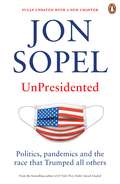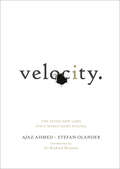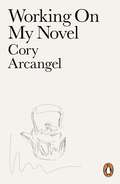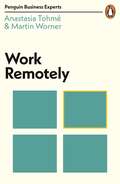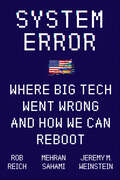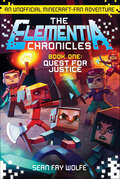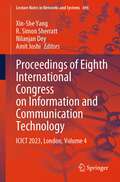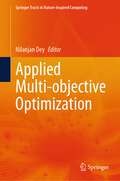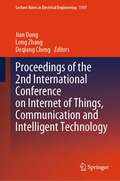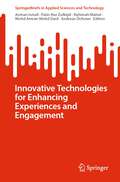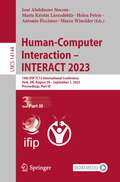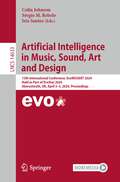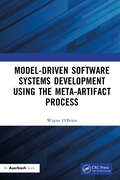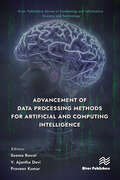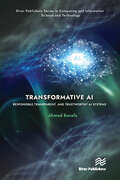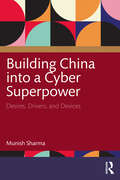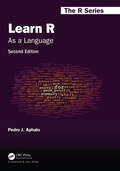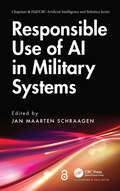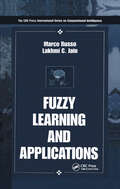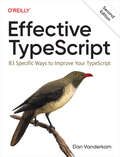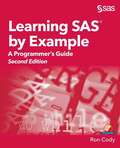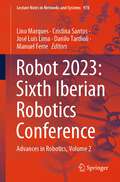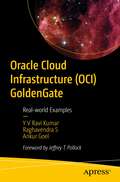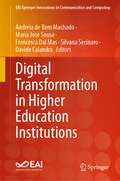- Table View
- List View
UnPresidented: Politics, pandemics and the race that Trumped all others
by Jon SopelFear and loathing on the 2020 campaign trail...'26 February, White House Briefing RoomThe coronavirus feels like it is changing everything. Suddenly it's not just a public health emergency; it has the potential to upend this whole election...'In UnPresidented: Politics, pandemics and the race that Trumped all others, BBC North America Editor Jon Sopel presents a diary of an election like we've never quite seen before.Experience life as a reporter on the campaign trail, as the election heats up and a global pandemic slowly sweeps in. As American lives are lost at a devastating rate, the presidential race becomes a battle for the very soul of the nation - challenging not just the Trump presidency, but the very institutions of American democracy itself.In this highly personal account of reporting on America in 2020, Jon Sopel takes you behind the scenes of a White House in crisis and an election in turmoil, expertly laying bare the real story of the presidential campaign in a panoramic account of an election and a year like no other.
The War Against the BBC: How an Unprecedented Combination of Hostile Forces Is Destroying Britain's Greatest Cultural Institution... And Why You Should Care
by Patrick Barwise Peter YorkThere's a war on against the BBC. It is under threat as never before. And if we lose it, we won't get it back.The BBC is our most important cultural institution, our best-value entertainment provider, and the global face of Britain. It's our most trusted news source in a world of divisive disinformation. But it is facing relentless attacks by powerful commercial and political enemies, including deep funding cuts - much deeper than most people realise - with imminent further cuts threatened. This book busts the myths about the BBC and shows us how we can save it, before it's too late.
Velocity: The Seven New Laws for a World Gone Digital
by Ajaz Ahmed Stefan OlanderHow can you win when the only certainty is change? Highly accessible, lively and inspiring, Velocity draws upon the authors’ unique perspectives and experiences to present seven timeless new laws for businesses and individuals in a world that is dominated by rapid change and digital technology. Written as a fascinating and enjoyable conversation between the authors – Stefan Olander, Vice President of Digital Sport from Nike and Ajaz Ahmed founder and Chairman AKQA – Velocity's up-to-date examples illustrate key lessons, together with insights, ideas and inspiration that individuals and businesses should adopt to thrive in the digital age. Velocity shares the vision and values required to succeed with the untold backstories to influential and iconic innovation. Fast paced, useful, provocative and highly motivating, Velocity is a management book that will arm you with actionable ideas to define your future. Features: - 4 Velocity principles: Speed, Direction, Acceleration, Discipline. - 7 Laws, including 'A Smith & Wesson beats four aces', 'It’s easier done than said', 'Convenient is the enemy of right' and 'No good joke survives a committee of six'.
Working On My Novel
by Cory ArcangelWhat does it feel like to try and create something new? How is it possible to find a space for the demands of writing a novel in a world of instant communication?Working on My Novel is about the act of creation and the gap between the different ways we express ourselves today. Exploring the extremes of making art, from satisfaction and even euphoria to those days or nights when nothing will come, it's the story of what it means to be a creative person, and why we keep on trying.
Work Remotely (Penguin Business Experts Series)
by Anastasia Tohmé Martin WornerRemote working makes us happier, more productive and more profitable, but it can bring its own set of challenges. How do we manage our work-life balance; communicate and collaborate effectively as teams; and ensure our technology is efficient?In Work Remotely, Penguin Business Experts Anastasia Tohmé and Martin Worner explain everything you need to know:- Set your own targets and monitor productivity- Establish boundaries between working hours and free time- Manage effective communication and decision-making at a distanceIncluding case studies from the companies around the world who are innovating and revolutionizing the way we work, Work Remotely shares useful advice and practical tips to ensure you get the most out of working away from the office environment.
System Error: Where Big Tech Went Wrong and How We Can Reboot
by Rob Reich Mehran Sahami Jeremy M. Weinstein"System Error is a triumph: an analysis of the critical challenges facing our digital society that is as accessible as it is sophisticated." — Anne-Marie Slaughter, CEO of New AmericaA forward-thinking manifesto from three Stanford professors—experts who have worked at ground zero of the tech revolution for decades—which reveals how big tech’s obsession with optimization and efficiency has sacrificed fundamental human values and outlines steps we can take to change course, renew our democracy, and save ourselves.In no more than the blink of an eye, a naïve optimism about technology’s liberating potential has given way to a dystopian obsession with biased algorithms, surveillance capitalism, and job-displacing robots. Yet too few of us see any alternative to accepting the onward march of technology. We have simply accepted a technological future designed for us by technologists, the venture capitalists who fund them, and the politicians who give them free rein.It doesn’t need to be this way.System Error exposes the root of our current predicament: how big tech’s relentless focus on optimization is driving a future that reinforces discrimination, erodes privacy, displaces workers, and pollutes the information we get. This optimization mindset substitutes what companies care about for the values that we as a democratic society might choose to prioritize. Well-intentioned optimizers fail to measure all that is meaningful and, when their creative disruptions achieve great scale, they impose their values upon the rest of us.Armed with an understanding of how technologists think and exercise their power, three Stanford professors—a philosopher working at the intersection of tech and ethics, a political scientist who served under Obama, and the director of the undergraduate Computer Science program at Stanford (also an early Google engineer)—reveal how we can hold that power to account.Troubled by the values that permeate the university’s student body and its culture, they worked together to chart a new path forward, creating a popular course to transform how tomorrow’s technologists approach their profession. Now, as the dominance of big tech becomes an explosive societal conundrum, they share their provocative insights and concrete solutions to help everyone understand what is happening, what is at stake, and what we can do to control technology instead of letting it control us.
The Elementia Chronicles: Quest for Justice (Elementia Chronicles #1)
by Sean Fay WolfeIntroducing an unofficial Minecraft-fan adventure series inspired by the bestselling game!Fans of the bestselling video game Minecraft, middle grade readers, and action-adventure story enthusiasts of all ages are about to embark on an exciting journey that will take them far beyond the world they know.Dark forces are at work on the Elementia server, and when new players Stan, Kat, and Charlie arrive on the scene, they quickly find themselves in peril. Targeted by more experienced players, the noobs must band together against the king, battle the natural forces of the game, and unravel the mysteries of Elementia in the name of justice.Written when he was sixteen, Sean Fay Wolfe's Quest for Justice is the debut novel by an unstoppable young storyteller and the first book in The Elementia Chronicles trilogy.Disclaimer: This book is not authorized, sponsored, endorsed or licensed by Mojang AB, Microsoft Corp. or any other person or entity owning or controlling any rights to the Minecraft name, trademarks or copyrights. Minecraft is a registered trademark of Mojang Synergies AB.
Proceedings of Eighth International Congress on Information and Communication Technology: ICICT 2023, London, Volume 4 (Lecture Notes in Networks and Systems #696)
by Xin-She Yang R. Simon Sherratt Nilanjan Dey Amit JoshiThis book gathers selected high-quality research papers presented at the Eighth International Congress on Information and Communication Technology, held at Brunel University, London, on 20–23 February 2023. It discusses emerging topics pertaining to information and communication technology (ICT) for managerial applications, e-governance, e-agriculture, e-education and computing technologies, the Internet of Things (IoT) and e-mining. Written by respected experts and researchers working on ICT, the book offers a valuable asset for young researchers involved in advanced studies. The work is presented in four volumes.
Applied Multi-objective Optimization (Springer Tracts in Nature-Inspired Computing)
by Nilanjan DeyThe book explains basic ideas behind several kinds of applied multi-objective optimization and shows how it will be applied in practical contexts in the domain of healthcare, engineering design, and manufacturing. The book discusses how meta-heuristic algorithms are successful in resolving challenging, multi-objective optimization issues in various disciplines, including engineering, economics, medical and environmental management. The topic is useful for graduates, researchers and lecturers in optimization, engineering, management science and computer science.
Proceedings of the 2nd International Conference on Internet of Things, Communication and Intelligent Technology (Lecture Notes in Electrical Engineering #1197)
by Jian Dong Long Zhang Deqiang ChengThis conference discussed the application of communication and IoT engineering in the era of smart technologies from the perspective of disciplinary integration, combining the theory and relevant algorithms of IoT and smart technologies. The book encompasses the entire spectrum of IoT solutions, from IoT to cybersecurity. It explores communication systems, including sixth generation (6G) mobile, D2D and M2M communications. It also focuses on intelligent technologies, especially information systems modeling and simulation. In addition, it explores the areas of pervasive computing, distributed computing, high performance computing, pervasive and mobile computing, and cloud computing.
Innovative Technologies for Enhancing Experiences and Engagement (SpringerBriefs in Applied Sciences and Technology)
by Azman Ismail Fatin Nur Zulkipli Rahimah Mahat Mohd Amran Mohd Daril Andreas ÖchsnerThe book showcases how the technologies are transforming entertainment, education, and professional training, offering readers real-world examples of their applications. "Innovative Technologies for Enhancing Experiences and Engagement" is an enlightening guide that reveals how emerging technologies are shaping our world, offering insights into the evolving digital landscape and inspiring a future of more personalized, immersive, and engaging experiences.
Human-Computer Interaction – INTERACT 2023: 19th IFIP TC13 International Conference, York, UK, August 28 – September 1, 2023, Proceedings, Part III (Lecture Notes in Computer Science #14144)
by José Abdelnour Nocera Marta Kristín Lárusdóttir Helen Petrie Antonio Piccinno Marco WincklerThe four-volume set LNCS 14442 -14445 constitutes the proceedings of the 19th IFIP TC 13 International Conference on Human-Computer Interaction, INTERACT 2023, held in York, UK, in August/September 2023. The 71 full papers and 58 short papers included in this book were carefully reviewed and selected from 406 submissions. They were organized in topical sections as follows: 3D Interaction; Accessibility; Accessibility and Aging; Accessibility for Auditory/Hearing Disabilities; Co-Design; Cybersecurity and Trust; Data Physicalisation and Cross-device; Eye-Free, Gesture Interaction and Sign Language; Haptic interaction and Healthcare applications; Self-Monitoring; Human-Robot Interaction; Information Visualization; Information Visualization and 3D Interaction; Interacting with Children; Interaction with Conversational Agents; Methodologies for HCI; Model-Based UI Design and Testing; Montion Sickness, Stress and Risk perception in 3D Environments and Multisensory interaction; VR experiences; Natural Language Processing and AI Explainability; Online Collaboration and Cooperative work; Recommendation Systems and AI Explainability; Social AI; Social and Ubiquitous Computing; Social Media and Digital Learning; Understanding Users and Privacy Issues; User movement and 3D Environments; User Self-Report; User Studies; User Studies, Eye-Tracking, and Physiological Data; Virtual Reality; Virtual Reality and Training; Courses; Industrial Experiences; Interactive Demonstrations; Keynotes; Panels; Posters; and Workshops.
Artificial Intelligence in Music, Sound, Art and Design: 13th International Conference, EvoMUSART 2024, Held as Part of EvoStar 2024, Aberystwyth, UK, April 3–5, 2024, Proceedings (Lecture Notes in Computer Science #14633)
by Colin Johnson Sérgio M. Rebelo Iria SantosThis book constitutes the refereed proceedings of the 13th International Conference on Artificial Intelligence in Music, Sound, Art and Design, EvoMUSART 2024, held as part of EvoStar 2024, in Aberystwyth, UK, April 3–5, 2024. The 17 full papers and 8 short papers presented in this book were carefully reviewed and selected from 55 submissions. The main purpose of this conference proceedings was to bring together practitioners who are using Artificial Intelligence techniques for artistic tasks, providing the opportunity to promote, present, and discuss ongoing work in the area.
Model-Driven Software Systems Development Using the Meta-Artifact Process
by Wayne O'BrienThe importance of architecture for software systems is widely accepted, but the role of architecture in the overall development process is not so clear. Presenting an architecture-centric process, Model-Driven Software Systems Development Using the Meta-Artifact Process makes the role of architecture clear. At its core, this book is about developing software systems and, more specifically, software code. It describes three major innovations for making software, which are combined with five widely used enabling technologies, to provide a complete, hypothesis-driven software development process known as Meta-Artifact Process (MAP). Having complete requirements is essential for making good software and supports the hypothesis-driven MAP.MAP offers properties, qualities, and capabilities that help stakeholders and developers understand and reason about a domain and target systems of interest. MAP, through the central role of the Meta-Artifact and incorporating the view that a computer program is a hypothesis about the requirements, offers new ways to look at systems and their development, even changing the roles of developers and stakeholders.Recommending agile methods wherever appropriate while supporting the OMG Essence standard and working within an overarching architecture, MAP presents ways to ensure that the requirements are complete and correct. It helps to identify likely points during development to form alternative hypotheses about them. Because MAP requires an underlying software development process, it can provide that clarity to existing processes in which the organization’s developers are already proficient.This book provides concrete examples from two broad but diverse areas—Accounting Information Systems in the commercial area and a military command and control system—to show the wide applicability of MAP in both commercial and defense domains.
Advancement of Data Processing Methods for Artificial and Computing Intelligence (River Publishers Series in Computing and Information Science and Technology)
by Seema Rawat V. Ajantha Devi Praveen KumarThis book emphasizes the applications of advances in data processing methods for Artificial Intelligence in today's fast-changing world, as well as to serve society through research, innovation, and development in this field. This book is applicable to a wide range of data that contribute to data science concerns and can be used to promote research in this high-potential new field. People's perceptions of the world and how they conduct their lives have changed dramatically as a result of technological advancements. The world has been gripped by technology, and the advances that are being made every day are undeniably transforming the planet. In the domains of Big Data, engineering, and data science, this cutting-edge technology is ready to support us.Artificial intelligence (AI) is a current research topic because it can be applied to a wide range of applications and disciplines to solve complicated problems and find optimal solutions. In research, medicine, technology, and the social sciences, the benefits of AI have already been proven. Data science, also known as pattern analytics and mining, is a technique for extracting useful and relevant information from databases, enabling better decision-making and strategy formulation in a range of fields. As a result of the exponential growth of data in recent years, the combined notions of big data and AI have given rise to many study areas, such as scale-up behaviour from classical algorithms. Furthermore, combining numerous AI technologies from other areas (such as vision, security, control, and biology) in order to build efficient and durable systems that interact in the real world is a new problem. Despite recent improvements in fundamental AI technologies, the integration of these skills into larger, trustworthy, transparent, and maintainable systems is still in its development. Both conceptually and practically, there are a number of unanswered issues.
Transformative AI: Responsible, Transparent, and Trustworthy AI systems (River Publishers Series in Computing and Information Science and Technology)
by Ahmed BanafaTransformative Artificial Intelligence provides a comprehensive overview of the latest trends, challenges, applications, and opportunities in the field of Artificial Intelligence. The book covers the state of the art in AI research, including machine learning, natural language processing, computer vision, and robotics, and explores how these technologies are transforming various industries and domains, such as healthcare, finance, education, and entertainment.The book also addresses the challenges that come with the widespread adoption of AI, including ethical concerns, bias, and the impact on jobs and society. It provides insights into how to mitigate these challenges and how to design AI systems that are responsible, transparent, and trustworthy.The book offers a forward-looking perspective on the future of AI, exploring the emerging trends and applications that are likely to shape the next decade of AI innovation. It also provides practical guidance for businesses and individuals on how to leverage the power of AI to create new products, services, and opportunities.Overall, the book is an essential read for anyone who wants to stay ahead of the curve in the rapidly evolving field of Artificial Intelligence and understand the impact that this transformative technology will have on our lives in the coming years.
Building China into a Cyber Superpower: Desires, Drivers, and Devices
by Munish SharmaThis book provides a comprehensive look into China’s emerging cyberspace strategy. It highlights the prime drivers of China’s desire to be a cyber superpower and discusses the ways in which China is turning resources into cyber power.The book analyses China’s domestic cyber policy initiatives, strategy documents, censorship measures, and the rationale behind its strong advocacy for sovereignty in cyberspace. It examines China’s position on the prominent issues of cyberspace governance, norms and security in cyberspace, and key diplomatic initiatives. The book also discusses next-generation networks, artificial intelligence, quantum information sciences, and cyber warfare.An important contribution to the study of China’s cyber policy, the book will be of interest to students and researchers of international relations,Chinese digitalisation, security studies, Chinese politics, international security, Chinese foreign policy, and Chinese economy. It will also be useful to the policymakers and corporate professionals engaged with China’s digital sphere.
Learn R: As a Language (Chapman & Hall/CRC The R Series)
by Pedro J. AphaloLearning a computer language like R can be either frustrating, fun or boring. Having fun requires challenges that wake up the learner’s curiosity but also provide an emotional reward for overcoming them. The book is designed so that it includes smaller and bigger challenges, in what I call playgrounds, in the hope that all readers will enjoy their path to R fluency. Fluency in the use of a language is a skill that is acquired through practice and exploration. For students and professionals in the biological sciences, humanities and many applied fields, recognizing the parallels between R and natural languages should help them feel at home with R. The approach I use is similar to that of a travel guide, encouraging exploration and describing the available alternatives and how to reach them. The intention is to guide the reader through the R landscape of 2024 and beyond.What is new in the second edition? Text expanded by more than 25% to include additional R features and gentler and more detailed explanations Contains 24 new diagrams and flowcharts, seven new tables, and revised text and code examples for clarity All three indexes were expanded, and answers to 28 frequently asked questions added What will you find in this book? Programming concepts explained as they apply to current R Emphasis on the role of abstractions in programming Few prescriptive rules—mostly the author’s preferences together with alternatives Presentation of the R language emphasizing the “R way of doing things” Tutoring for “programming in the small” using scripts for data analysis Explanation of the differences between R proper and extensions for data wrangling The grammar of graphics is described as a language for the construction of data visualisations Examples of data exchange between R and the foreign world using common file formats Coaching to become an independent R user, capable of writing original scripts and solving future challenges
Responsible Use of AI in Military Systems (Chapman & Hall/CRC Artificial Intelligence and Robotics Series)
by Jan Maarten SchraagenArtificial Intelligence (AI) is widely used in society today. The (mis)use of biased data sets in machine learning applications is well‑known, resulting in discrimination and exclusion of citizens. Another example is the use of non‑transparent algorithms that can’t explain themselves to users, resulting in the AI not being trusted and therefore not being used when it might be beneficial to use it.Responsible Use of AI in Military Systems lays out what is required to develop and use AI in military systems in a responsible manner. Current developments in the emerging field of Responsible AI as applied to military systems in general (not merely weapons systems) are discussed. The book takes a broad and transdisciplinary scope by including contributions from the fields of philosophy, law, human factors, AI, systems engineering, and policy development.Divided into five sections, Section I covers various practical models and approaches to implementing military AI responsibly; Section II focuses on liability and accountability of individuals and states; Section III deals with human control in human‑AI military teams; Section IV addresses policy aspects such as multilateral security negotiations; and Section V focuses on ‘autonomy’ and ‘meaningful human control’ in weapons systems.Key Features: Takes a broad transdisciplinary approach to responsible AI Examines military systems in the broad sense of the word Focuses on the practical development and use of responsible AI Presents a coherent set of chapters, as all authors spent two days discussing each other’s work This book provides the reader with a broad overview of all relevant aspects involved with the responsible development, deployment and use of AI in military systems. It stresses both the advantages of AI as well as the potential downsides of including AI in military systems.
Fuzzy Learning and Applications (International Series on Computational Intelligence)
by Marco RussoWith low computational complexity and relatively short development time, Fuzzy Logic is an indispensable tool for engineering applications. The field is growing at an unprecedented rate, and there is a need for a book that describes essential tools, applications, examples, and perspectives in the field of fuzzy learning. The editors of Fuzzy Learni
Effective TypeScript
by Dan VanderkamTypeScript is a typed superset of JavaScript with the potential to solve many of the headaches for which JavaScript is famous. But TypeScript has a learning curve of its own, and understanding how to use it effectively takes time and practice. Using the format popularized by Effective C++ and Effective Java (both Addison-Wesley), this practical book features 83 items that give specific advice on what to do and what not to do, and how to think about the language. Author Dan Vanderkam shows you how to apply each item's advice through concrete examples. This book will help you advance from a beginning or intermediate user familiar with TypeScript basics to an expert who knows how to use the language well. Updated for TypeScript 5, this second edition includes two new chapters on type-level programming and TypeScript recipes.Learn the nuts and bolts of TypeScript's type systemUse type inference to get full safety with a minimum of type annotationsDesign types to make your code safer and more understandableModel complex APIs using generic types and type-level programmingUnderstand how dependencies and type declaration files work in TypeScriptSuccessfully migrate your JavaScript code base to TypeScript
Learning SAS by Example: A Programmer's Guide
by Ron CodyLearn to program SAS by example! Learning SAS by Example: A Programmer’s Guide, Second Edition, teaches SAS programming from very basic concepts to more advanced topics. Because most programmers prefer examples rather than reference-type syntax, this book uses short examples to explain each topic. The second edition has brought this classic book on SAS programming up to the latest SAS version, with new chapters that cover topics such as PROC SGPLOT and Perl regular expressions. This book belongs on the shelf (or e-book reader) of anyone who programs in SAS, from those with little programming experience who want to learn SAS to intermediate and even advanced SAS programmers who want to learn new techniques or identify new ways to accomplish existing tasks. <P><P>In an instructive and conversational tone, author Ron Cody clearly explains each programming technique and then illustrates it with one or more real-life examples, followed by a detailed description of how the program works. The text is divided into four major sections: Getting Started, DATA Step Processing, Presenting and Summarizing Your Data, and Advanced Topics. Subjects addressed include
Robot 2023: Advances in Robotics, Volume 2 (Lecture Notes in Networks and Systems #978)
by Lino Marques Cristina Santos José Luís Lima Danilo Tardioli Manuel FerreThis book contains a selection of papers accepted for presentation and discussion at ROBOT2023, the Sixth Iberian Robotics Conference, held in the University of Coimbra, Coimbra, Portugal, during November 22nd-24th, 2023. ROBOT2023 is part of a series of conferences that are jointly organized by Sociedade Portuguesa de Robótica (SPR) / Portuguese Society for Robotics and by Sociedad Española para la Investigación y Desarrollo en Robótica (SEIDROB) / Spanish Society for Research and Development in Robotics. These conferences, now occurring with a yearly periodicity, provide a forum to roboticists mostly from Iberia, but also from other parts of the world, to present and discuss their research results, new developments, and applications in the field of Robotics. The volume 1 of this book contains 45 papers addressing fundamental aspects of mobile robotics and robot manipulation while volume 2 contains 45 papers covering the application of robotics in different domains and environments.
Oracle Cloud Infrastructure (OCI) GoldenGate: Real-world Examples
by Y V Ravi Kumar Raghavendra S Ankur GoelThis book focuses on the utilization of GoldenGate Services (GGS) in conjunction with a microservices architecture on the Oracle cloud (OCI), primarily for data migration and integration across various data sources and targets.The book begins with a practical example of utilizing GGS on a Marketplace VM, progressively advancing to in-depth discussions on implementing GoldenGate as a Service on OCI. The book offers illustrative guides for data replication between RDBMSs (such as Oracle, Postgres, and big data targets such as Kafka). Additionally, it explores monitoring techniques using Enterprise Manager and Grafana dashboards. A comparative analysis is presented between traditional VM-based GoldenGate installations and the OCI service model. Special attention is given to Zero Downtime Migration (ZDM) and leveraging GGS for database migration from on-premises to OCI. Some chapters address multi-cloud replication using OCI GGS and include real-life case studies.By the end of this book you will have gained comprehensive insights into the architectural design of GoldenGate Services and will be adept at replicating data using GGS, enabling you to replicate setups in your own environments.What You Will LearnSet up GoldenGate Services for high availability (HA), disaster recovery (DR), migration of data to cloud, and moving data into the data lake or lakehousePerform logical migration of data to the cloud using the ZDM tool (ZDM uses GoldenGate internally).Replicate data to big data targetsMonitor GGS using Enterprise Manager and GrafanaReplicate data in a multi-cloud environment Who This Book Is ForOracle database administrators who want to replicate data or use Oracle GoldenGate Services for migration and setup of high availability (HA) and disaster recovery (DR); and data engineers who want tobuild the data warehouse, data lake, data lakehouse to push data in near real-time
Digital Transformation in Higher Education Institutions (EAI/Springer Innovations in Communication and Computing)
by Andreia de Bem Machado Maria José Sousa Francesca Dal Mas Silvana Secinaro Davide CalandraThis book analyzes digital technologies being used in the teaching-learning process. The authors show how the use of AI in higher education can provide personalized education through the automation of administrative teaching tasks, software programs that favor the detection of topics that need reinforcement in the classroom, the guidance and support of students outside the classroom, and the use of data intelligently to teach and support students. In addition, the authors show how to further personalize education with the use of augmented reality, adaptive platforms, intelligent tutor systems, Chatbots, adaptive learning, computer aided instruction, MOOCs, and robotics. The authors answer questions such as: What sustainable educational technologies can be used in the teaching-learning process; How can Blockchain technology and AI be applied in higher education; How can the metaverse be applied in virtual learning environments? The book is relevant to researchers, professionals, andstudents interested in technology and education.
